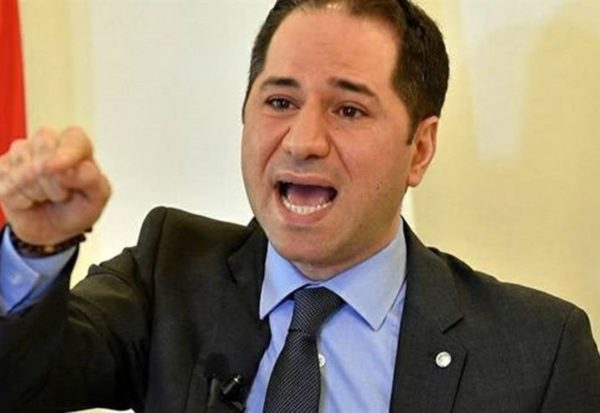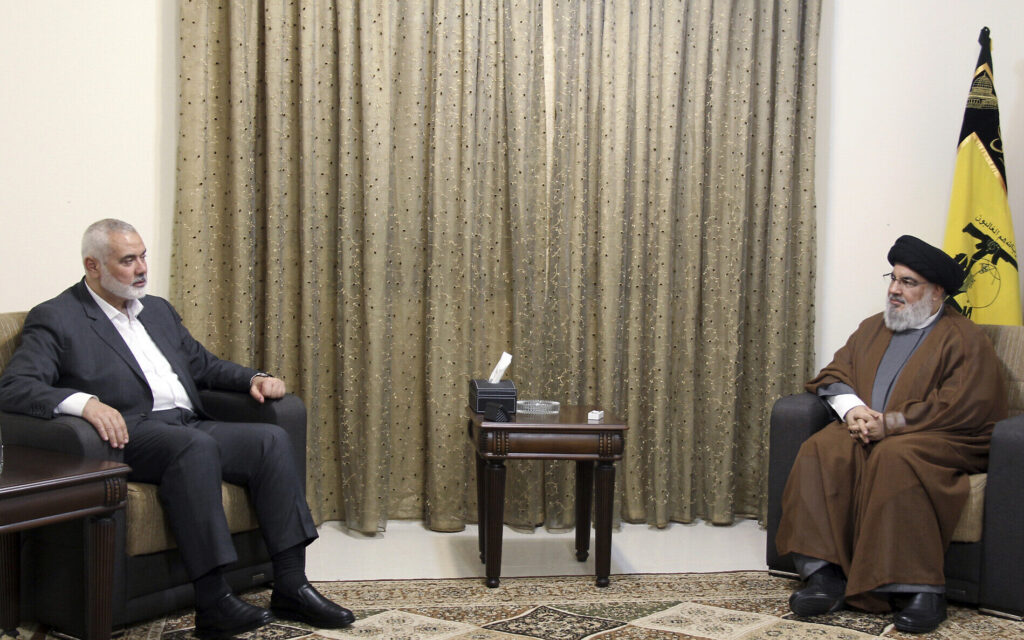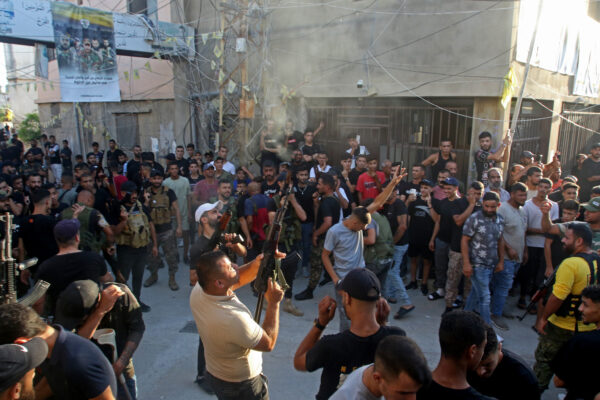
The phalange Party chief Sami Gemayel is holding the Iranian backed Hezbollah militant group responsible for the deadly clashes in the largest Palestinian refugee camp of Ain al-Hilweh in south Lebanon, near the city of Sidon.
“With the presence of Lebanese and non-Lebanese armed militias on Lebanese soil, the Ain al-Hilweh clashes are a normal result of that,” Gemayel said in an interview with al-Hurra TV.
He was asked to clarify why is “Hezbollah is responsible for the armed clashes in the camp,
Gemayel said: “Hezbollah is responsible for two reasons:
1- Hezbollah is preventing the rise of the state by preventing it from extending its authority over all territories.
2- It is also preventing the exclusivity of arms and it is responsible for arms proliferation because it is giving the example through the presence of its armed militia.”
3- Hezbollah is engaged in the conflict among the Palestinian factions by backing some of them in Palestine, coordinating with some in Lebanon and playing a role in the power broker among these factions.”
“The state is absent and Hezbollah and the parliament speaker are taking the decisions and negotiating on behalf of the Lebanese, as happened in the (sea) border demarcation file, when the state was in the forefront while in fact it was Hezbollah that was negotiating with Israel through the Lebanese state,” Gemayel went on to say, in reference to maritime border demarcation reached last October .
On the other hand Hezbollah chief Hassan Nasrallah on Tuesday described the Ain al-Hilweh camp clashes as “painful.”

“What’s happening at the Ain al-Helweh camp is painful because it entails blood, displacement , bad and agonizing repercussions,” Nasrallah said in a televised speech
“This fighting should not continue, because its impact is detrimental to Sidon, the neighboring areas, the South and entire Lebanon,” Nasrallah added, urging “everyone at the Ain al-Hilweh camp to stop the fighting.”
“Anyone who can contribute with a word or a phone call in order to halt the fighting should do so,” he said.
UNRWA : Death toll 11 and hundred wounded
The UN’s agency for Palestinian refugees (UNRWA) says fighting in the Ain al-Hilweh refugee camp entered its fourth day.
UNRWA said four days of fighting in the Ain al-Hilweh refugee camp, in southern Lebanon, resulted in the death of at least 11 people and hundreds more wounded.
Fighting began on Saturday, after an Islamist militant in the camp was shot as part of a feud. This set off a cascade of reprisal attacks, including the killing of Fatah commander Abu Ashraf al-Armoushi, who heads the Palestinian Security Forces in the camp. He and four of his aides were ambushed in a parking lot.
“This heinous crime doesn’t benefit anyone but the enemy, and that is the Zionists, because they are the primary and only beneficiary. Abu Ashraf al-Armoushi was killed because he protected the Ein el-Hilweh from the infidels and terrorists,” said Jalal Abuchehab, a Fatah official at Al-Rashidieh camp.
“Our people have endured significant injustice as many of their homes were torched and their cars were destroyed. The Lebanese army should protect us and intervene to resolve this issue,” said a camp resident.
According to the so called Cairo Accord , a 1969 agreement, the Lebanese military had been prohibited from entering the Palestinian camps. Instead, they only are allowed to deploy forces around the camp.
The agreement was signed on 2 November 1969 during talks between former Palestinian president Yassir Arafat and the the former Lebanese army commander, General Emile Bustani.
Inside, security has been handled by a joint committee of all the Palestinian factions, making the camp a scene of regular violence between rival factions vying for influence and power.
Days before the clashes broke out, the PA’s head of intelligence Majed Faraj reportedly visited Lebanon and called on authorities there to disarm the camp. But in the absence of law and order, chaos has continued to rule Lebanon’s largest refugee camp.
Since Hezbollah is backing the Palestinian Islamists there is a lot of suspicion in Lebanon that Hezbollah , the only armed militia in Lebanon may have been the source of the arms inside the camp
Palestinians living in Arab countries — including the 450,000 in Lebanon — are descendants of the hundreds of thousands who fled or were driven from their homes in the war that followed Israel’s creation in 1948.
They remain in Lebanon’s 12 refugee camps because Israel and the Palestinians have never reached a deal that would enable them to return to their homes that are now occupied by Israel.
YaLibnan / News Agencies


Leave a Reply
You must be logged in to post a comment.